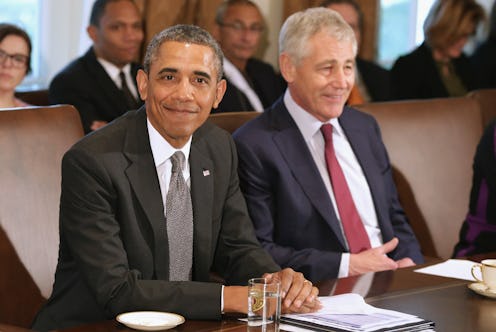News
Obama's Iran Diplomacy Has Finally Paid Off
The slow but steady diplomatic entreaties between the U.S. and Iran hit a major milestone on Monday as Iran, following months of negotiations with the West, disconnected nuclear centrifuges at two of its uranium enrichment plants in exchange for economic sanctions relief from the West. The deal itself was finalized last week, but given the extremely precarious nature of the U.S. and Iran’s nascent diplomatic relationship, it was hardly a sure thing. Now, it is.
Per the agreement, Iran will halt aspects of its nuclear program for the next six months as negotiations continue. As Bustle reported:
The big highlight of the accord is Iran’s imperative to stop enriching uranium and to get rid of the military-grade enriched uranium it already has. In exchange, the U.S. will ease some economic sanctions in Iran over the next half-year, after which there will theoretically be a new agreement in place. Iran must also stop building centrifuges, detroy some of the infrastructure that makes uranium enrichment possible, and agree to be monitored by the U.N.’s nuclear watchdog agency if it wants the promised economic relief.
While the U.S. won’t end all of the sanctions it’s imposed on Iran, it will ease some of them, and as a result, Iran will now have access to roughly $4.2 billion in oil revenue that had previously been frozen in foreign accounts.
It’s a victory not only for Secretary of State John Kerry, who brokered the deal, but also President Obama, who’s quietly been pursuing behind-the-scenes diplomacy with Iran for quite some time. That diplomacy began in earnest shortly after the election of the country’s new moderate president, Hassan Rouhani, but efforts to strike a deal were threatened earlier this month when the Senate considered enacting new sanctions, which would have assuredly driven Iran from the bargaining table.
But that didn’t happen, and as a result, Iran has voluntarily halted the most dangerous component of its nuclear program. While it’s only a temporary agreement, the fact that it was actually implemented suggests that the two sides are genuinely eager to reach a long-term deal. That would be an enormous win for two countries that haven't had formal diplomatic relations for over thirty years.
